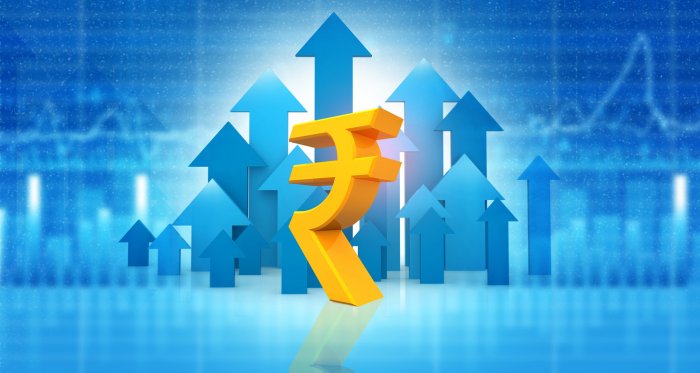INDIAN DIGITAL CURRENCY (CBDC India) – Digital Rupee

CRYPTOCURRENCY IS THE BASE OF DIGITAL CURRENCY. REALLY?
After India’s Union Finance Minister Nirmala Sitharaman has announced the launch of Indian Digital Currency in Budget 2022, there may be many questions that arise in your mind regarding Indian Digital Currency. You might be confused if digital currency and cryptocurrency are the same? How will it benefit ordinary people and businesses? Why did the government need this? How will it help in boosting the economy? Would it be secure or not? And so on.
Well, having such questions in your mind is quite obvious. And we are all ready to help you out in figuring out each and every detail related to Digital Currency, Cryptocurrency, Blockchain Technology and other significant terms and queries related to it. So, let’s get started
What is Central Bank Digital Currency (CBDC)?
- CBDC or Central Bank Digital Currency is a legal tender that is issued by the Central Bank in a digital form.
- In simple words, it is just like a fiat currency just in a different form. This currency will be in the digital form.
- The Reserve Bank of India (RBI) will launch this digital currency at the beginning of the new financial year.
- Digital Currency will be backed by , Blockchain technology
- Digital Currency or CBDC is being considered as a big step for the digital economy.
- India will become the first major country to officially launch its own digital currency in this way.
Who will launch the Digital Currency CBDC?
- Reserve Bank of India, i.e. RBI will launch Central Bank Digital Currency(CBDC) in the new financial year.
- This Indian Digital Currency will be based on blockchain technology.
- CBDC issued by RBI in digital form will be a legal tender.
- There will be a CBDC like a currency issued by a central bank, but you will not be able to keep it in your pocket like a note. It will work just like a currency.
- Also, CBDC can be exchanged with notes. It will be reflected in your account in electronic form.
- Earlier in the RBI report, it was said that with Central Bank Digital Currency, you will be able to buy anything anywhere easily and safely as compared to cash.
The most confusing question is, Will it be like Cryptocurrency?
Well, No, Digital Currency is not like Cryptocurrency. The only similarity is the technology both are developed with. Yes, Both Digital Currency and Cryptocurrency are based on Blockchain Technology.
Now let us know how both of these are different.
- CBDC or Central Bank Digital Currency is not a cryptocurrency. The CBDC of the Reserve Bank of India will be a legal tender.
- It will be issued by RBI, so there will be no risk in it. This will make it easier to buy in the country.
- This private virtual currency will be completely different from bitcoin.
- There are many obstacles with private virtual currency and these currencies like bitcoin are not recognized in all countries.
- Also, since the private virtual currency is not linked to any government, there is a lot of risk in it.
- Private virtual currencies are not commodities. Also, they have no intrinsic value.
Will it be a risky currency like bitcoin?
The government aims to provide a legal and convenient digital currency to the common people so that they do not face any security-related problems.
- The announcement of digital currency in the budget of the government expresses its intention to take other crypto and virtual currencies like bitcoin and Ethereum.
- RBI has raised concerns about bitcoin on several matters, as cryptocurrencies like Bitcoin and Ethereum, is prone to money laundering, terror financing, tax evasion.
- In such a situation, terrorist organizations can also use it. Hence RBI has announced plans to introduce its own Indian digital currency (CBDC).
What is Blockchain Technology on which Digital Currency will rely?
Blockchain is a chain of blocks that contains information that makes it impossible to change, hack, or cheat the system. Blockchain is a distributed ledger that is completely open to everyone. The most interesting feature of Blockchain Technology is once the data has been recorded inside a blockchain, it becomes almost impossible to change it. And that is why it is seen as a future of storing data for security concerns.
Will Central Bank Indian Digital Currency replace Cash?
A Central Bank Digital Currency, CBDC is a legal tender issued by a bank in a digital format. These digital fiat currencies are not different from hard cash, apart from the fact that they are in a virtual form. It is not meant to replace hard cash, but to coexist as an additional form of payment method.
Will Digital Currency be better than other digital payments?
Yes, it will be far better than other payment methods. Suppose you transact with a Digital Currency instead of your bank account through a UPI system. In this, there is no need for interbank settlement as soon as the cash is handed over. With this, transactions with the payments system will be done in more real-time and at less cost. With this, Indian importers will be able to pay digital dollars in real-time to US exporters without any middlemen.
Will RBI be able to launch it directly?
No, RBI won’t be able to launch it directly. Let’s know-how this will be done then.
Even though RBI is ready to launch it. But this will not happen until the crypto law is passed in Parliament. Because the existing provisions under the Reserve Bank of India Act have been made keeping the currency physical in mind. This will also result in the need for amendments to the Coinage Act, the Foreign Exchange Management Act (FEMA) and the Information Technology Act.
Will the introduction of Digital Currency affect banks?
Yes, let’s know what kind of effect it will have on banks.
- With the introduction of Central Bank digital currency, the transaction demand for bank deposits will reduce.
- Also, the settlement risk will be less. Being risk-free, CBDC will reduce bank deposits.
- If banks lose deposits, their ability to build credit will be limited. Because central banks cannot provide loans to the private sector.
Do America, China and UK have their own digital currency?
No, America, China and the UK don’t have their own digital currency but digital yuan or e-CNY is a digital version of China’s sovereign currency and has been in the works since 2014. It is not a cryptocurrency like bitcoin but is instead issued and controlled by the People’s Bank of China. Let us know which countries have their own digital currency.
- Digital Currency will be an electronic record or digital token of the official currency of any country.
- It will also be useful in money transactions, payments for the purchase of essential goods.
- As of December 2021, 87 countries (which account for more than 90% of global GDP) were researching CBDCs and gathering information.
- Of these, 35 countries were considering a project to introduce a CBDC in May 2020.
- Of these, 9 countries have already launched CBDCs in full swing. These include the Bahamas, 7 Eastern Caribbean and Nigeria. Nigeria has also recently launched its CBDC e-naira outside the Caribbean.
- However, the major countries with the 4 largest central banks (USA, Europe, Japan and the UK) lag behind in launching their own Central Bank Digital Currency.
- There are 14 countries including China and South Korea that are now in the experimental phase with their CBDCs preparing to launch soon.
Will digital currency prove beneficial for common people?
Yes, the digital currency will be beneficial for common people.
- With the introduction of digital currency, the cost of transactions for common people and businesses with the government will be reduced.
- For example, a worker in UAE gets 50% of the salary in the form of digital money. With this, these people can easily and easily send money to their relatives in other countries without paying any extra charges.
- The World Bank estimates that for now sending money to other countries in this way has to pay a fee of more than 7%, while with the introduction of digital currency it will come down to 2%. With this, low-income countries will get more than $ 16 billion (Rs 1.2 lakh crore) every year.
What are the Advantages of Digital Currency?
- Introduction of digital rupee using blockchain technology will help in reducing financial and physical efforts required for money management
- Potential for a more efficient payment system in areas where managing the currency is expensive.
- Does not require customers to have a bank account.
- Digital Currency will provide expansion to financial inclusion.
Though the Central Bank Indian Digital currency would be launched in the new financial year, it would be interesting to see if it will also affect the cryptocurrency or not and how easily it will be adopted by the people, since most of the people are still unaware of the digital payment systems.
Need help? Call our award-winning support team at +31 (0)636079961 | +91 7974442814

AskGalore is a Solution Centric, Creative and Client-friendly Information Technology & Marketing company. We work towards the satisfaction of our clients while delivering the highest quality standards.
USEFUL LINKS
GET IN TOUCH
Canada:
4025 River Mill Way, Mississauga, ON L4W 4C1, Canada
Netherlands:
Landfort 64. Lelystad 8219AL
USA:
Agomic Labs, 9901 Valley Ranch Pkw E Ste 1030 Irving TX 75063
India:
4A, Mapple High Street, Hoshangabad Road, Bhopal, MP.